Cohort 2.3 is the third group of students in BioMed2. They will start with us in October 2024 and you can read about their exciting research projects below.

Sylvie Agnello
The crosstalk between the duodenum and the pancreas: Profiling the immune system to identify the role of the gut in the pathogenesis of type 1 diabetes
I have just completed my MSci in Biomedical Sciences at the University of York. My master’s project focused on the sexual dimorphism present in the pathology of thymic B cells in the NOD mouse model of type 1 diabetes under the supervision of Professor Allison Green. A natural progression from my master’s project, under the lead supervision of Professor Sarah Richardson, my PhD will involve profiling the gut immune system and its crosstalk with the pancreas in the pathogenesis of type 1 diabetes using tissues from NOD mice and rare human samples from the Exeter Archival Diabetes Biobank. As someone who lives with type one diabetes, it is an absolute privilege to be contributing to the field that means so much to me, especially as my PhD research may identify therapeutic targets for prevention strategies.
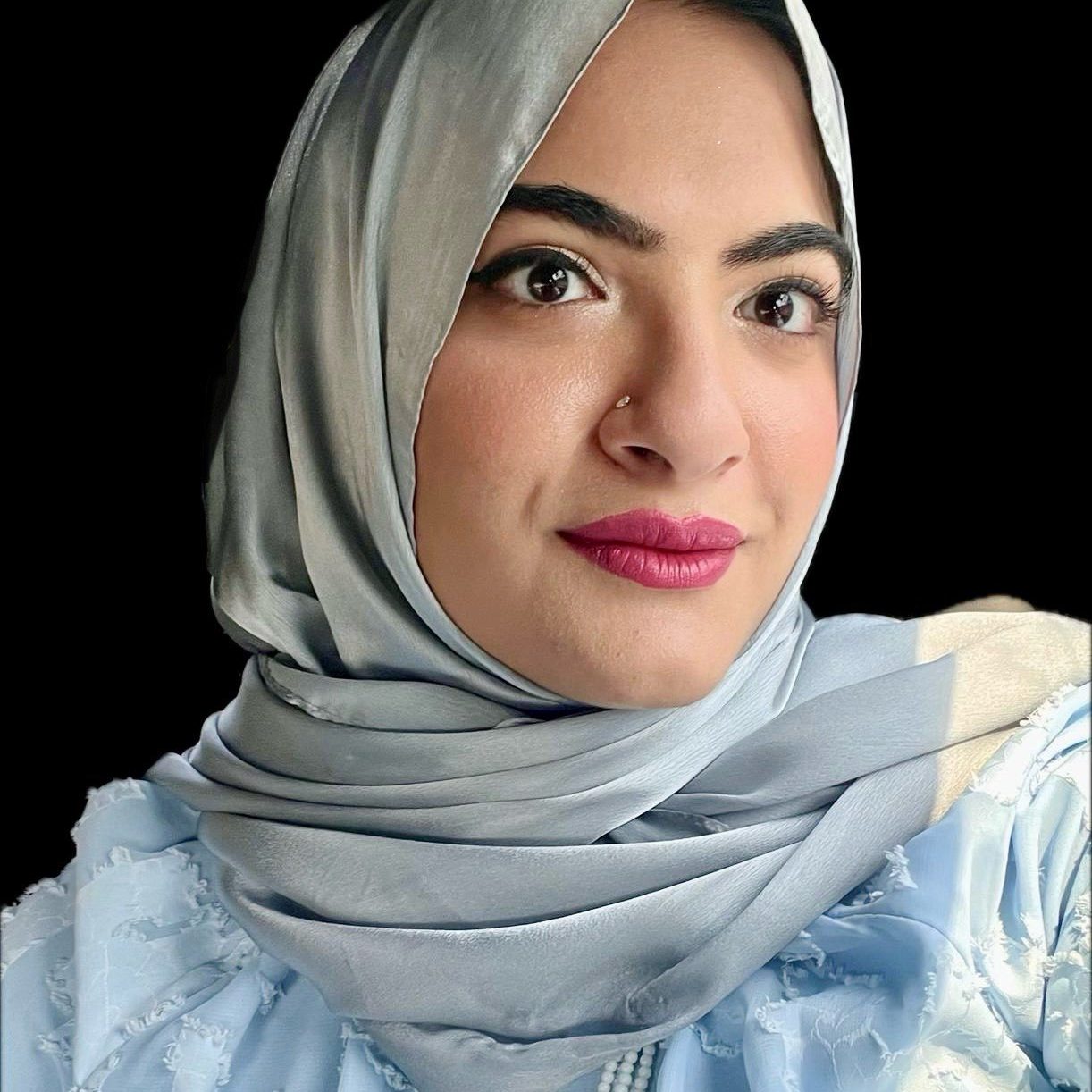
Mahnoor Ali
Microneedle integrated foetal scalp electrodes for neonatal brain monitoring
I’ve always been interested and passionate about research, particularly healthcare technology research due to its vast potential to save and improve lives. I’ve studied Biomedical Engineering at Queen Mary University of London, and then worked for 3 years in the NHS, training to become a Clinical Scientist within Clinical Engineering. During this time, I also pursued my Masters in Clinical Sciences (Clinical Engineering) from King’s College London. My time in the NHS instilled in me a great appreciation of the importance of medical technology within hospitals and how research is supported by the NHS. My PhD project involves the development of a novel medical device to detect early stage hypoxia during labour and in newborns. This device will be developed and tested on healthy adult volunteers. The volunteers will be recruited from North Bristol NHS Trust. It is my aim to act as a liaison between academia and the NHS, promoting innovation and research to improve service delivery.

Burhan Anis
Combating Cancer with Data Science: Deep Learning of Histological Images for the Detection of Lymph Node Metastases
My interest in machine learning can be traced back to an unlikely source: bats. I first developed my skills in the Machine Learning space during my Natural Sciences degree at the University of Exeter, where I participated in a project which built an automated bat monitor. Figuring out how to classify different bat species with the data collected from this device was my first, truly novel, ML challenge. I developed this interest further throughout my masters, where I researched the applications of deep neural networks in predicting RNA Polymerase II distributions in humans. Now, for my PhD, I will be looking at the use of Deep Learning and computer vision techniques to better diagnose periodontal cancers from histopathological images, under the supervision of Dr. Damian Farnell. I am particularly interested in explainable and trustworthy AI, and I look forward to advancing this subfield of AI in the medical setting.
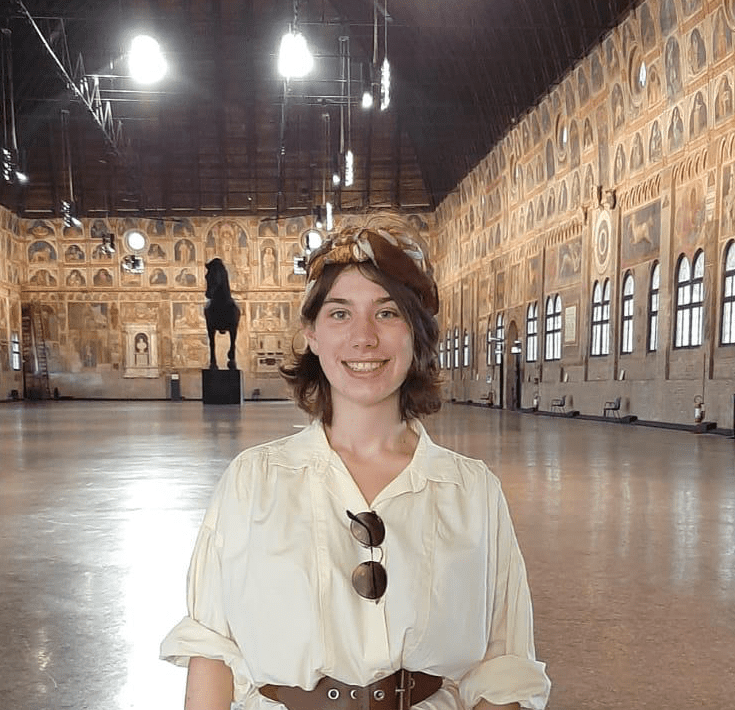
Chiara Bonaldo
Immune and therapeutic implications of intratumour bacteria
After completing an undergraduate degree in Applied Medical Sciences in Swansea University, I undertook a MSc by Research degree in the University of Bristol where I focused on the role of RAS regulators in breast cancer chemoresistance. My PhD will be based in Bristol, under the supervision of Dr. Koh, Dr. Laabei and Prof. Wuelfing. During my project, I will investigate the role of intratumour bacteria in drug response and how they affect the tumour microenvironment, with a focus on immune cells. This project, will be the first demonstration of how intratumour bacteria alter tumour behaviour, and will open the door for novel therapeutic approaches.

Sofia Cano Toyos
Virtual Reality Toolkit for Diabetes
My passion for biomedical engineering began at Tecnológico Nacional de México, campus Hermosillo, where I developed an algorithm to assess footprints in Type 2 Diabetes Mellitus patients, graduating with First Class Honors.
I continued my education at the University of Strathclyde in Glasgow, where I earned a Master’s degree in Biomedical Engineering with distinction. My thesis explored lattice structure design and printing for enhancing lower limb prostheses. Additionally, I volunteered at the stroke rehabilitation clinic, where I assisted with patient exercises, tracked progress, and engaged in patient education.
For my PhD at the University of Exeter, under the supervision of Dr. Neil Vaughan, I will develop a novel Virtual Reality (VR) toolkit for diabetes. The VR for diabetes would benefit clinicians and people with diabetes, enhancing education, treatment, management, and prevention of type 1 and type 2.

Emma Chubb
Improving access to early help for adolescent depression symptoms in adolescents from minority backgrounds
I completed my degree in Psychology at Cardiff University in 2021 and have worked on projects related to adolescent mental health including; a study exploring the mechanisms associated with the mental health of care-experienced young people during periods of transition; an RCT of a CBT-based group intervention for the children of depressed parents; and a Welsh-government funded project exploring links between colleges and the NHS, including improving the quality of routine data collected by Student Wellbeing teams in both colleges and universities.
My PhD focuses on how gender and sexual minority youth with depression interact with digital spaces and where they are likely to go for support for their mental health, with the aim to embed messaging and signposting about opportunities for support within these spaces (such as online Single Session Interventions (SSIs) which are being explored by the LAMP (spotLight on Adolescent Mood Problems) research group).

Jack Gibb
Risks and Health Outcomes of Heart Procedures in Children and Young People with Congenital Heart Disease
I am a Paediatric Cardiology trainee doctor based at Bristol Royal Hospital for Children and previously obtained an MSc in critical care medicine from the University of Cardiff. I have had a long-standing interest in the use of biomarkers to predict outcomes in cardiac disease. My PhD, Under the Supervision of Professor Massimo Caputo, will focus on the metabolic signatures that predict demise in children with single ventricle congenital cardiac disease and how these might be modified with exercise. I will be collaborating with Professor Craig Williams at the Children’s Health and Exercise Research Centre at Exeter University to understand how these might be modified with exercise.
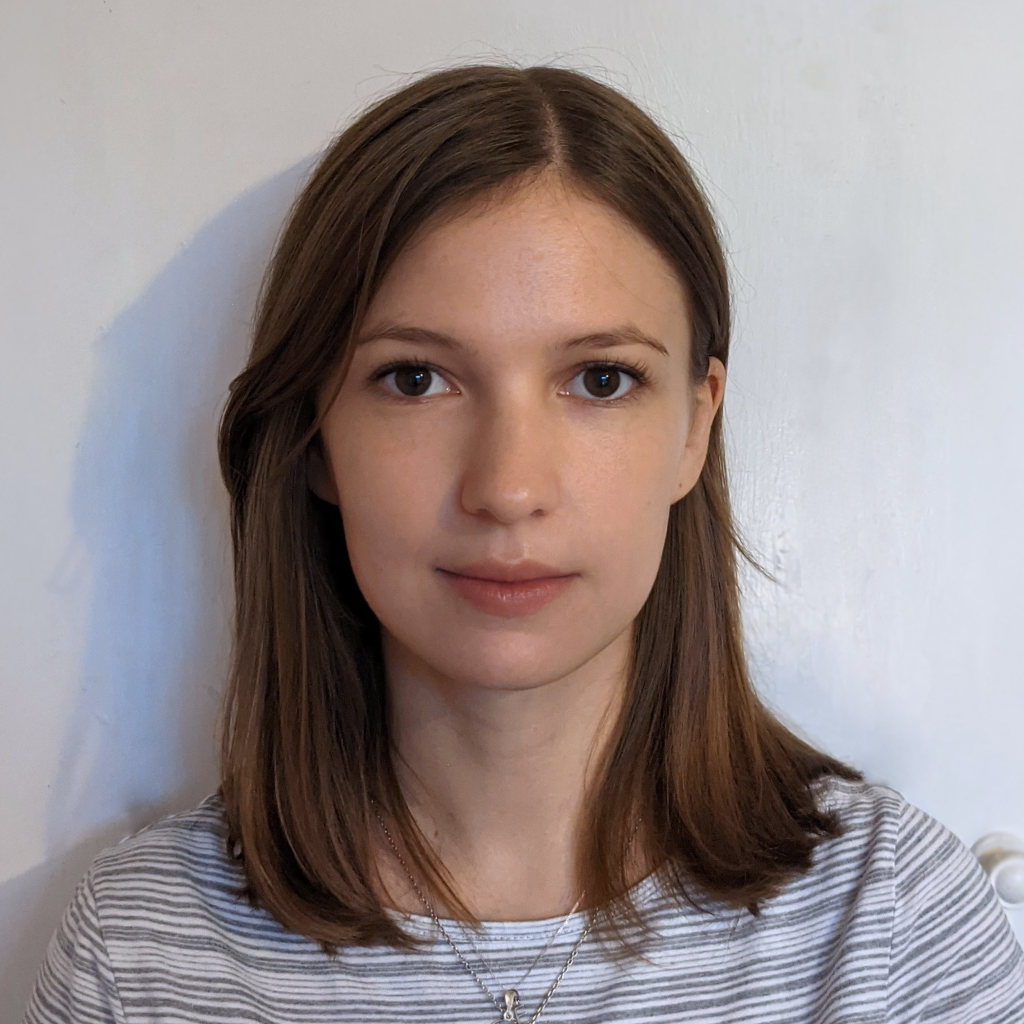
Elizabeth Hodge
Maturation of expanded learning and memory circuits
I graduated from the University of Bristol in 2022 with a BSc in Biology. During my BSc I developed a keen interest in sensory systems and the function of the nervous system. I pursued this further through a MSc by research with Dr Stephen Montgomery, where I looked at the links between sensory behaviour and neuroanatomy in Heliconius butterflies. Alongside my MSc, I also worked on a short-term project evaluating brain variation in reef fish. In my PhD project at the University of Bristol, I will continue to work with Heliconius, investigating memory, neural structure and circuit maturation in the context of human health and aging. Through this project I hope to further establish Heliconius as a model insect.
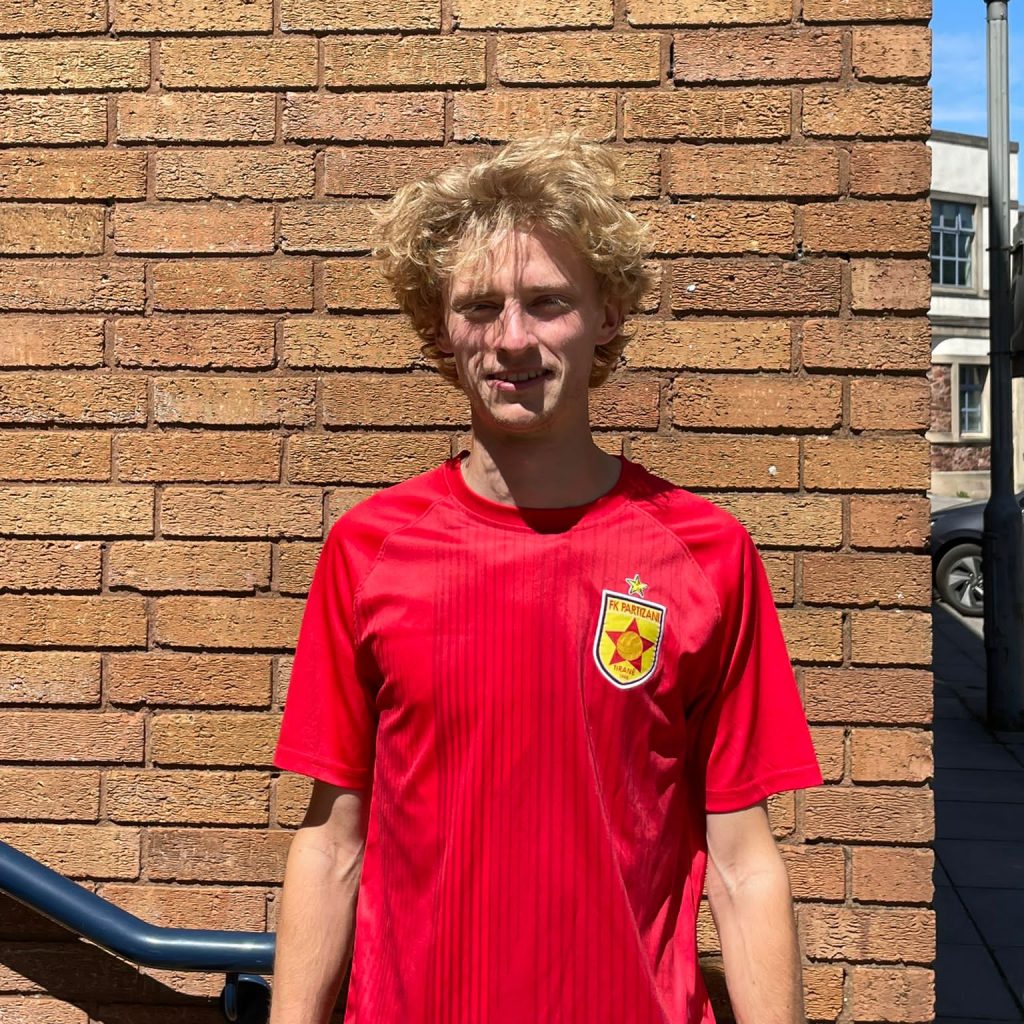
Joe Hoff
Penicillin Antibiotic Action and Resistance in a Bacterial “Superbug”
Following an undergraduate degree in Biochemistry at the University of Bristol, I completed a research Master’s in Prof. Jim Spencer’s group, also in Bristol. Here, I used experiment and biomolecular simulation to understand how enzymes degrade antibiotics and therefore confer antimicrobial resistance, as well as looking at the ways in which they can be inhibited. My PhD project continues in a similar vein, using a structural biology approach to understanding the molecular mechanisms that underpin antibiotic resistance in bacteria.
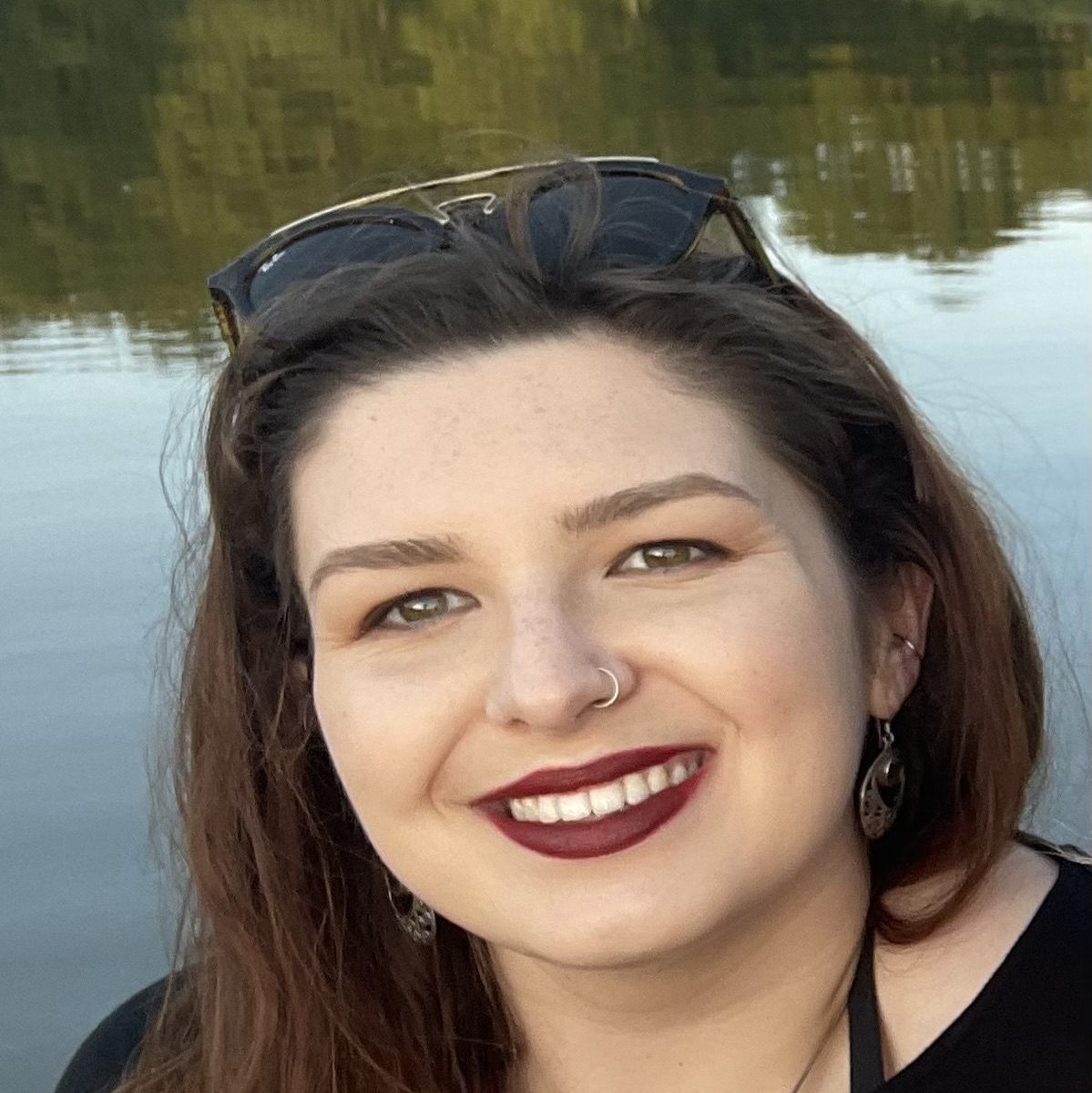
Oceana Leigh
Using molecular and clinical data to predict outcomes to treatments for depression
Following my BSc in Medical Sciences (Neuroscience), I have worked as a graduate research assistant performing genetic data analysis. I care deeply about research into complex conditions and am excited to combine my interest in epigenetics with my passion for patient-centred research in my PhD project which focuses on predicting treatment outcomes for depression.
Many people experiencing debilitating depressive symptoms do not benefit from treatments initially prescribed. Finding an effective regimen can be a lengthy process, often requiring switching medications, which can cause withdrawal effects and delay benefits. The first aim will be to identify DNA methylation markers in the blood which, along with clinical characteristics, could predict treatment response. Working with the diverse expertise of my supervisors—Dr. Doretta Caramaschi, Professor Anke Karl, Dr. Matthew Suderman, and Dr. Paul Yousefi—this project will integrate clinical, demographic, genetic, and epigenetic data, incorporating insights from clinicians and those with lived experience.
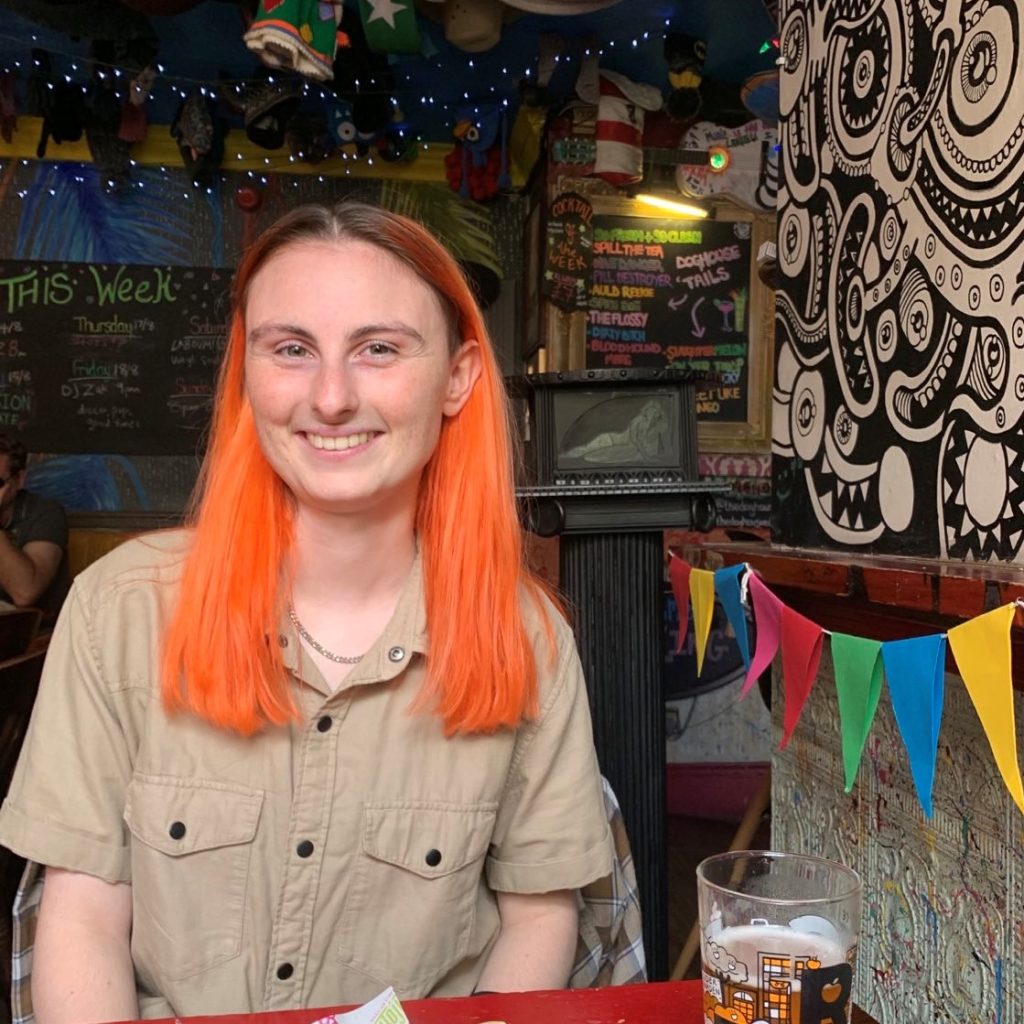
Aimee Lucignoli
Developing virus-based cancer vaccines with molecular enhancers
I graduated with an Integrated Masters in Biomedical Sciences from Cardiff University. This included a professional training year with Prof Alan Parker and Dr Carly Bliss engineering a new virus-based immunotherapy for cancer. I also spent a summer at the University of Edinburgh working on cardiovascular gene therapies before returning to Cardiff for my masters project, where I investigated the interplay between HPV and soil-transmitted helminth infections. For my PhD I will be developing therapeutic cancer vaccines, once again under supervision of Dr Carly Bliss. We hope to harness the power of exosomes, which are involved in cell-cell communication within the body, to enhance the immune responses.
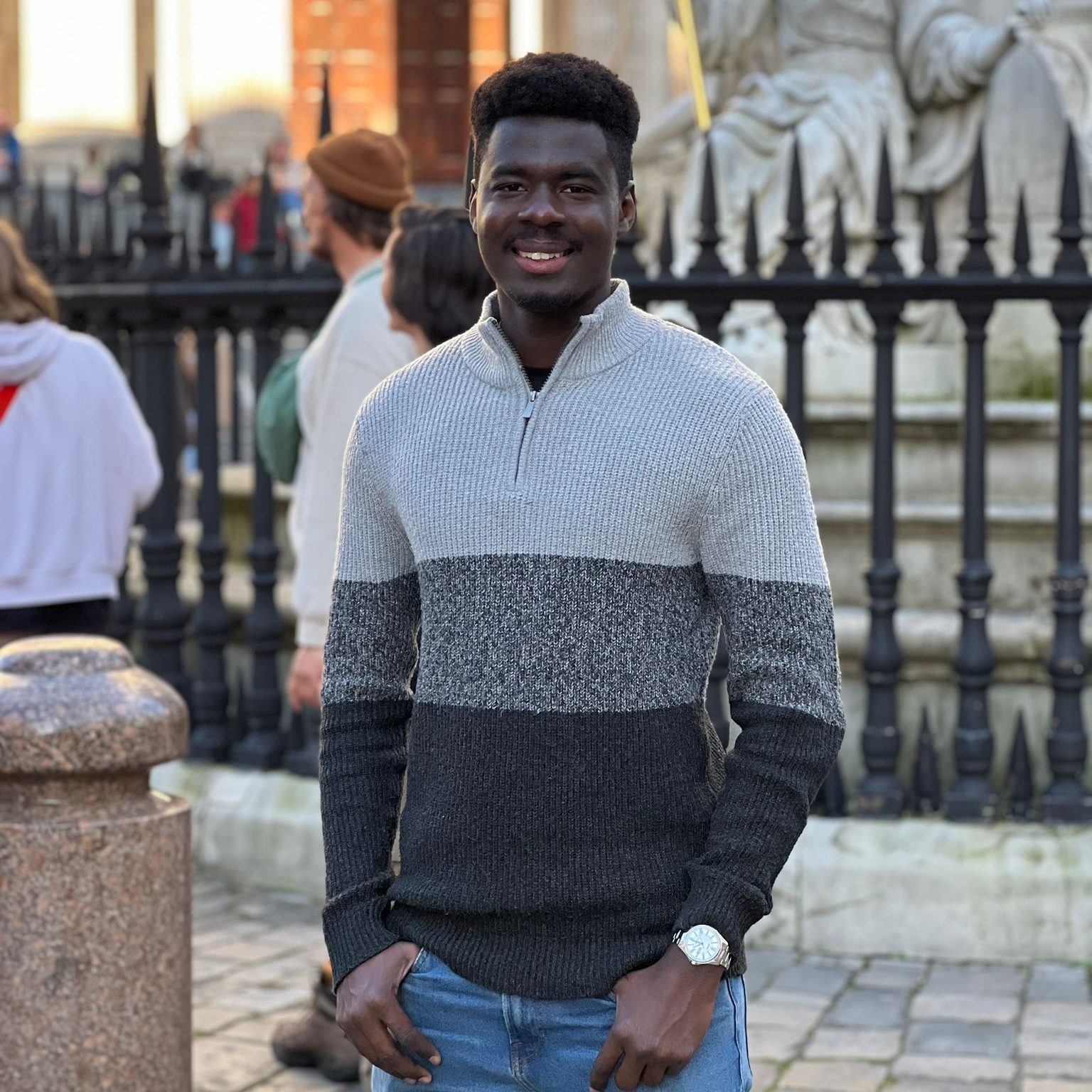
Grenic MFOUKA MBASSANI
Understanding the contribution of mitochondrial dysfunction in Alzheimer’s disease
I am set to join the GW4 DTP programme after completing my degree in Cognitive Neuroscience and Psychology with Industrial/Professional Experience at The University of Manchester. During my placement at Sygnature Discovery, I developed a high-throughput platform for pseudovirus production used in antiviral drug screening and vaccine testing. My final-year project focused on the role of the paraventricular nucleus of the hypothalamus in mediating the effects of GDF15 and GLP1 receptor agonists. With experience in in vitro molecular/cellular assays and in vivo physiology, I sought a PhD that bridges these areas. My PhD project will explore the contribution of mitochondrial dysfunction in Alzheimer’s disease, based in Dr. Gaynor Smith’s lab at the Dementia Research Institute, University of Cardiff, in collaboration with Prof. Julie Williams. This research aligns perfectly with my background and aspirations to contribute to neurodegenerative disease research.

Nick Morris
Evaluating the impact of the novel Welsh Government ‘Active Travel Town’ policy on inequalities in travel modes and physical activity
My PhD will use mixed methods to evaluate the effect of novel government policies on inequalities in travel and physical activity; and to inform policymaking in this area. In 2023 I graduated with an MSc in Social Research Methods from the London School of Economics, focusing on research design for evaluation and particularly how to combine causal inference and econometric methods with qualitative analysis. Before this I worked for a number of years in public policy and advocacy roles, mainly in the UK charity sector, for disability, child health and homelessness causes. Through this work I became interested in how evidence about outcomes and experiences is used in policymaking and how research and evaluation can help reduce inequality through more effective public policies.
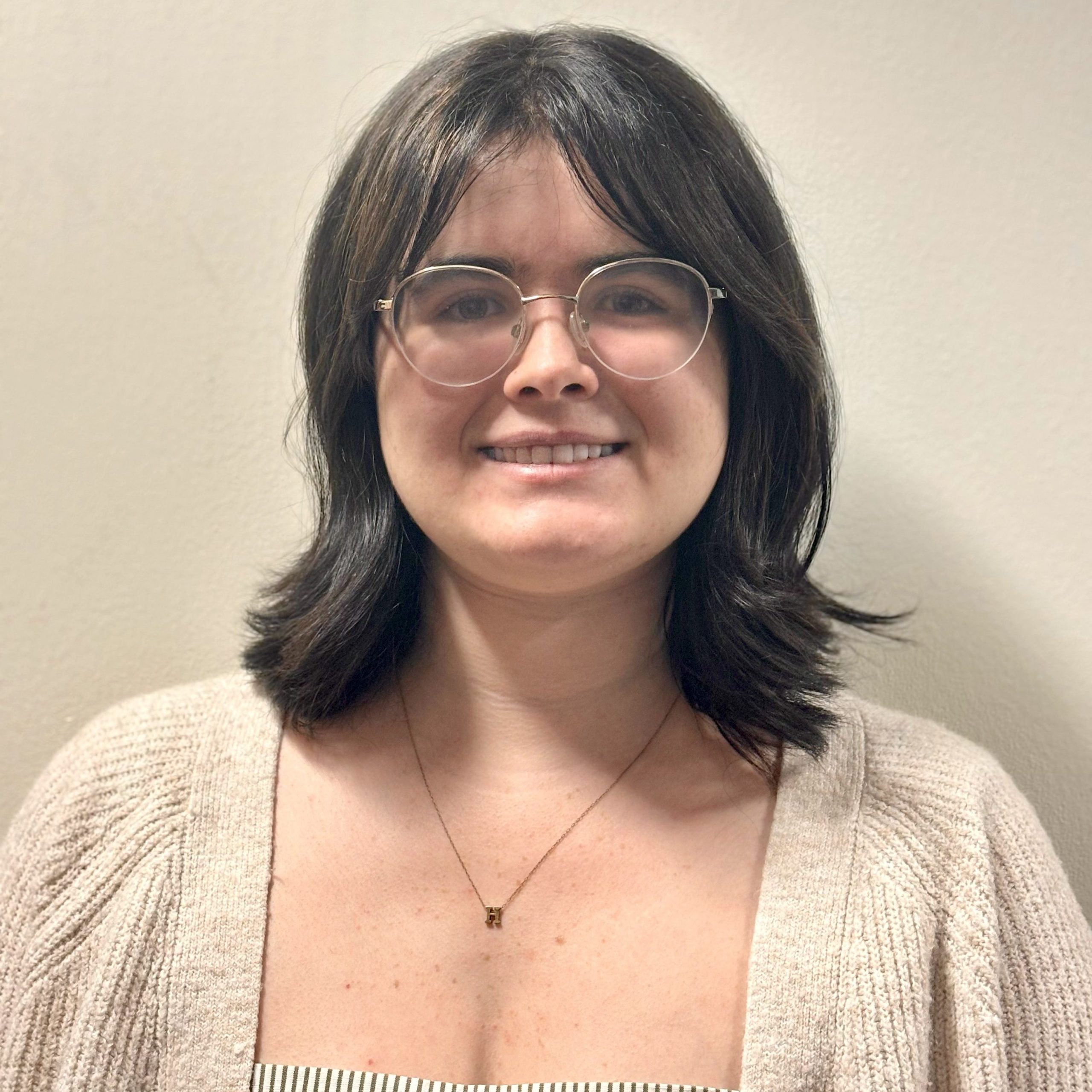
Helen Russell
Investigating cause-specific hospitalisations among people living with HIV on antiretroviral therapy
I graduated with a BSc Microbiology from University College Dublin before moving to the UK to complete my MSc Epidemiology from the University of Bristol. I have since worked as a research associate at Bristol, analysing the records of the English national breast screening programme. I have a keen interest in the role that observational data can play in generating valuable research, which directly translates to benefits to patients. Using data from the largest collaboration of HIV cohorts across Europe and North America, my PhD research will identify causes and rates of hospitalisations among people with HIV on antiretroviral therapy and investigate how these may differ by factors such as gender and mode of acquisition. This project will be based at the University of Bristol under the supervision of Dr Adam Trickey, Professor Jonathan Sterne, and Dr David Gillespie (Cardiff University).
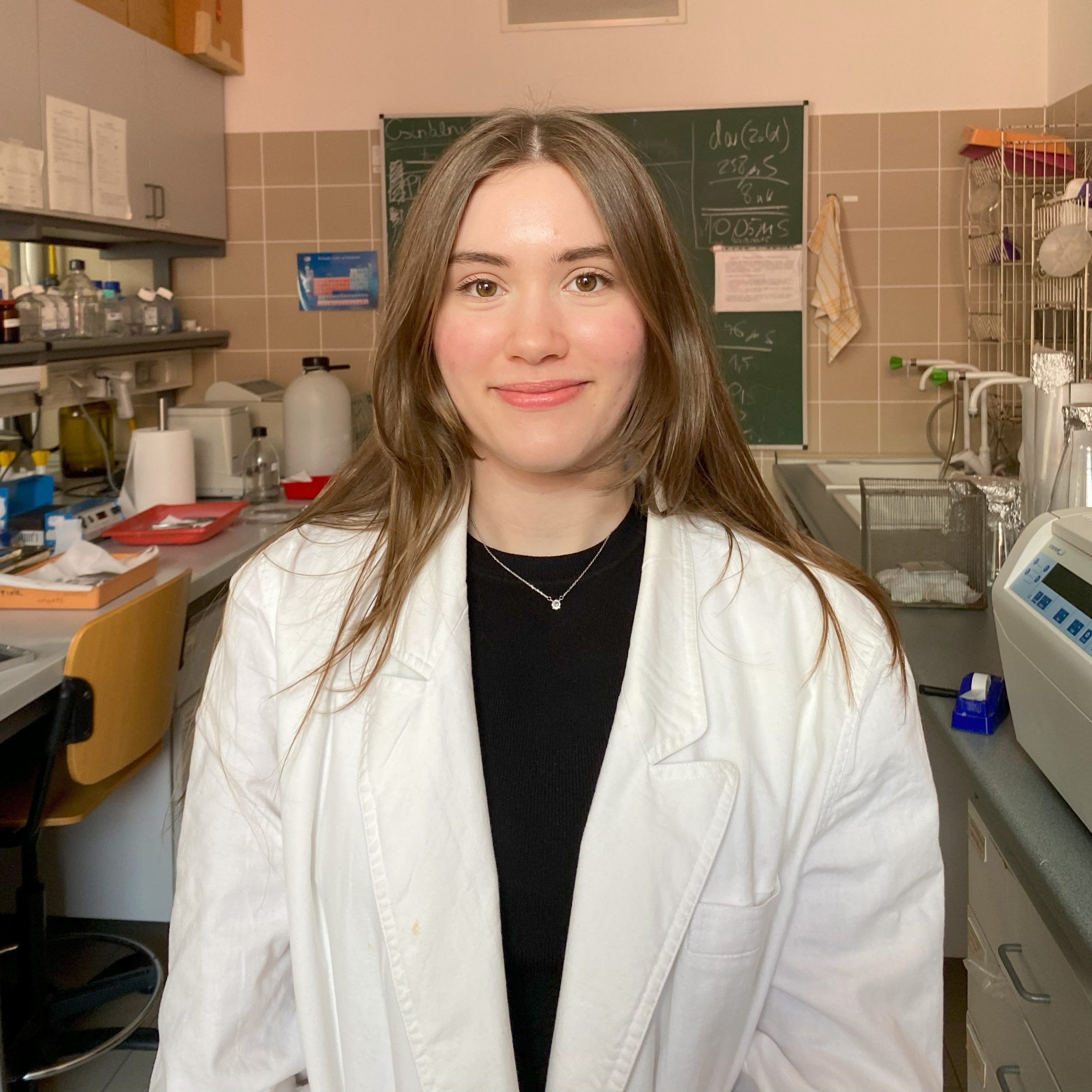
Rosie Russell
Understanding the role of disease-causing NMDA receptor mutations in synaptic development and function
Recently I completed an Integrated Masters of Neuroscience at Sussex University, experiencing a wide variety of projects including a placement on the Turning Scheme. Here I studied learning and memory in embryonic mouse hippocampal cells using a wide variety of molecular and electrophysiological techniques at ELTE University, Budapest. I am pursuing a research career following my interests in molecular facets of neurodegenerative disorders. Therefore, I am excited to be joining the GW4 to complete my PhD in Dr Anastasiades’ lab group in Bristol. Here, I am studying GRIN2A mutations of NMDA receptors in mice via circuit analyses, hippocampal slice preparation and behavioural analyses.

Caroline Schreiber
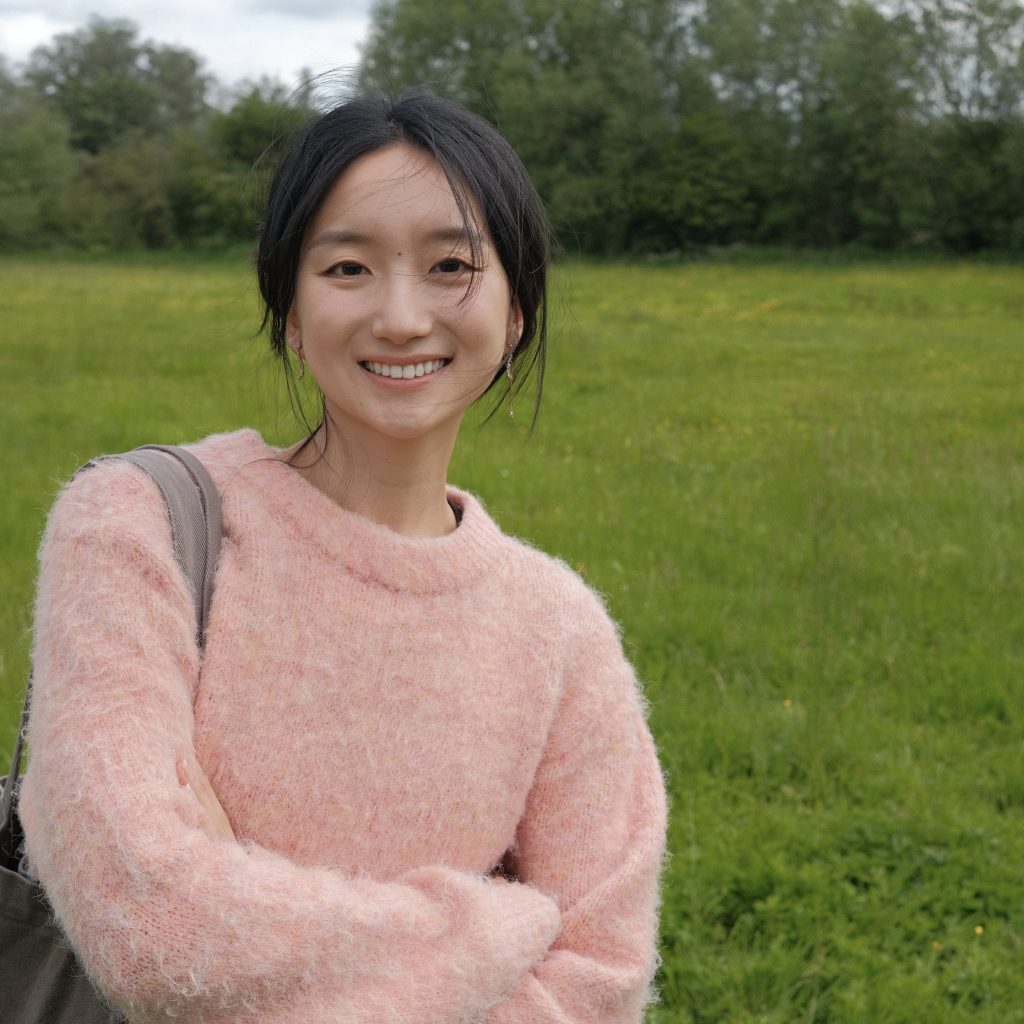
Yige Sima
Evolution of antimicrobial resistance in bacterial microbiomes
I developed a strong interest in microbiology and genomics through my time at Imperial College London and Newcastle University. During my time at Newcastle, I investigated the oncogenic networks in paediatric B-cell acute lymphoblastic leukemia, and investigated the signal convergence that controls the H2-T6SS expression in Pseudomonas aeruginosa during my MSc at Imperial. I also have worked as a laboratory technician in a Biotech company in Cambridge, working with Illumina whole genome sequencing. Working under the supervision of Dr Brian Jones, my project will look at how biocide exposure contributes to the emergence of antimicrobial resistance using a polymicrobial model of catheter-associated infection, specifically the impact of biocide exposure on bacterial community dynamics and the selection of antimicrobial resistance. I hope to answer some of the fundamental questions about the role of biocides in evolution of antimicrobial resistance through this project.

Ewelina Stanko
Investigating the role of dietary fructose in the development of early-onset colorectal cancer
I completed my BSc in Biomedical Sciences at the University of Bristol, where I first developed an interest in the link between metabolism and cancer development. During my MSc in Research, I gained experience in intestinal organoid culture, as I investigated how metabolic reprogramming drives colorectal cancer by promoting stemness. My PhD project under the supervision of Dr Emma Vincent at the University of Bristol will take an interdisciplinary approach, combining cell biology and genetic epidemiology techniques, to determine how dietary fructose might be contributing to the rising incidence of early-onset colorectal cancer.
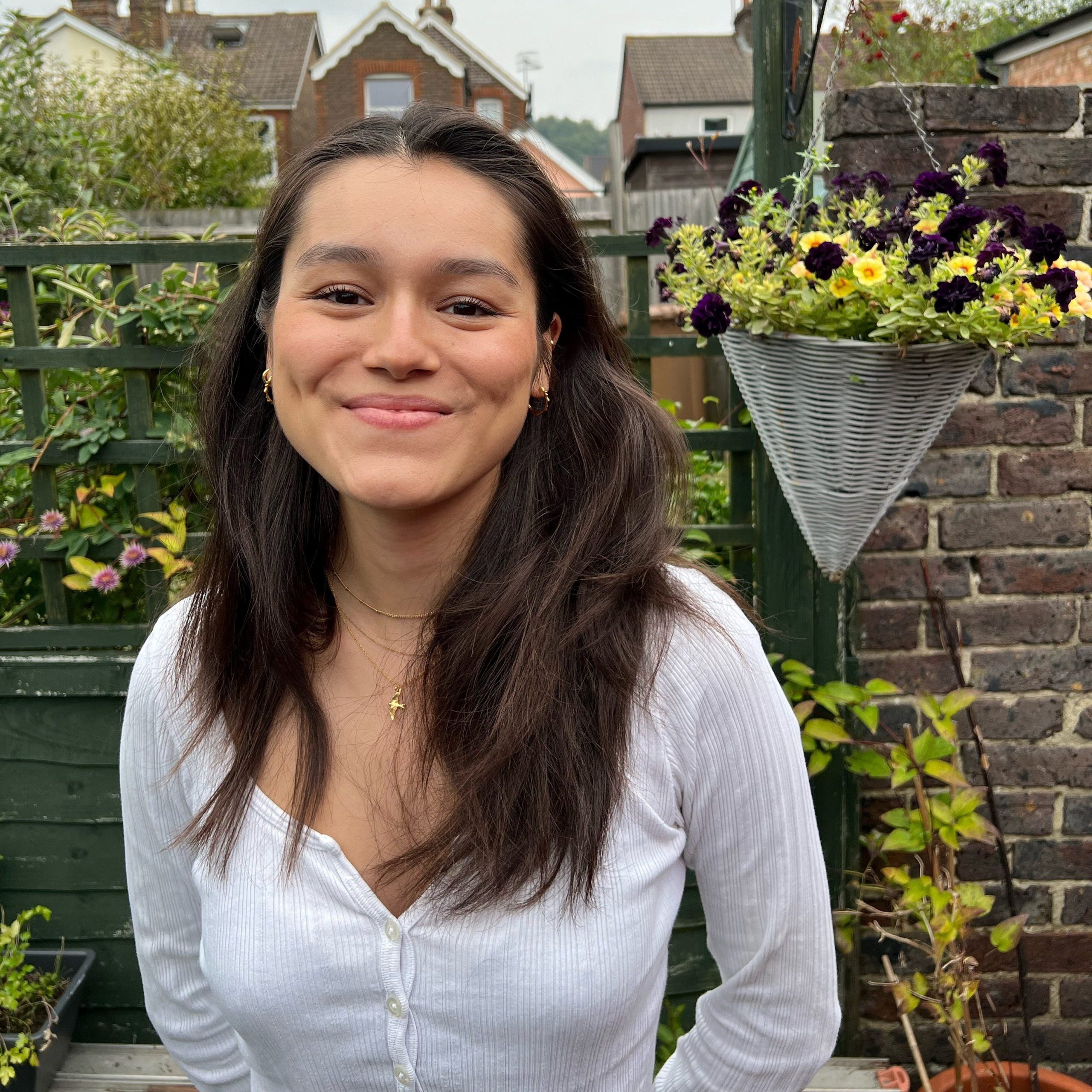
Amandine Tan
How do pancreatic cancers invade and activate nerves: towards treatments for cancer- associated pain
I developed a strong interest in cancer biology during my undergraduate studies in Biomedical Sciences at King’s College London. This led me to pursue an MSc in Cancer, Molecular Pathology, and Genomics at Barts Cancer Institute, where I focused on exploring the role of the myoepithelial cell in early breast cancer using 3D spheroid models. After completing my MSc, I worked as a research assistant in an immunology group who studied myeloid leukemias using mass cytometry, which ultimately led to the position of mass cytometry facility manager. For my PhD project, I aim to apply the skills I’ve gained in 3D coculture modelling, alongside electrophysiology techniques and zebrafish models, to investigate how pancreatic cancers invade and activate nerves to promote cancer-associated pain.
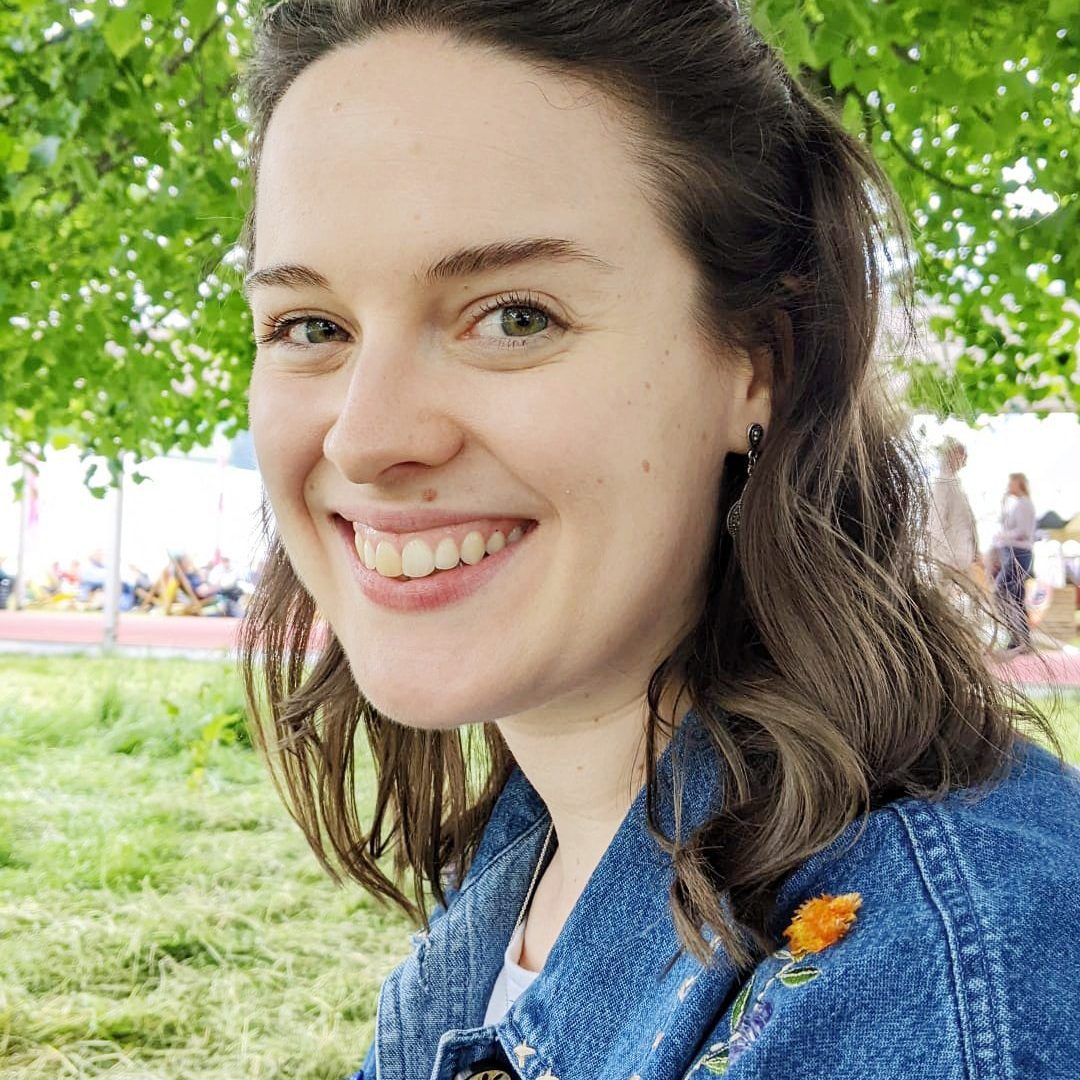
Sophie Thomas
Epigenetic regulation of microglial gene expression in Alzheimer’s Disease
During my BSc in Biochemistry at Cardiff University, I undertook a Professional Training Year exploring the role of microglia in Alzheimer’s Disease (AD) which sparked my interest in how these complex brain immune cells contribute to neurodegeneration. I then completed my MPhil, investigating the potential of probiotics to impact upon the inflammatory profile of microglia via the gut-brain axis. Since then, I have worked in industry for over two years as a Research Scientist, specialising in tissue culture. My PhD, under the supervision of Dr Owen Peters at Cardiff University, will aim to define epigenetic regulation of microglial gene expression in AD through epigenomic profiling of a human stem cell culture model to identify key microglial genes of interest before further investigation using functional assays. This research will provide insight into how epigenetic changes disrupt microglial functionality, resulting in aberrant neuroinflammation that contributes to the onset and progression of AD.

Lucy Williams
Development of adenovirus type 11 (Ad11) as a platform for immuno-oncology applications
During my BSc in Biomedical Science at the University of Surrey, I undertook a Professional Training Year in Professor Gerald McInerney’s group at the Karolinska Institutet. Here, I investigated the effect of altering key protein interactions on the regulation of stress granule formation in association with viral infection. After graduating, I gained further experience in the field of virology as a scientist in the biotech start-up, Accession Therapeutics. My role included preclinical testing of a modified species D adenovirus to determine the safety and efficacy of the vector for cancer therapeutics, as well as R&D of alternative vectors.
During my PhD project through the GW4 BioMed MRC DTP, I will be placed in Professor Alan Parker’s lab to study a species B adenovirus. This will involve characterisation and development of a vector for vaccine and targeted virotherapy applications, including structural and transcriptomic studies facilitated by my co-supervisors.
